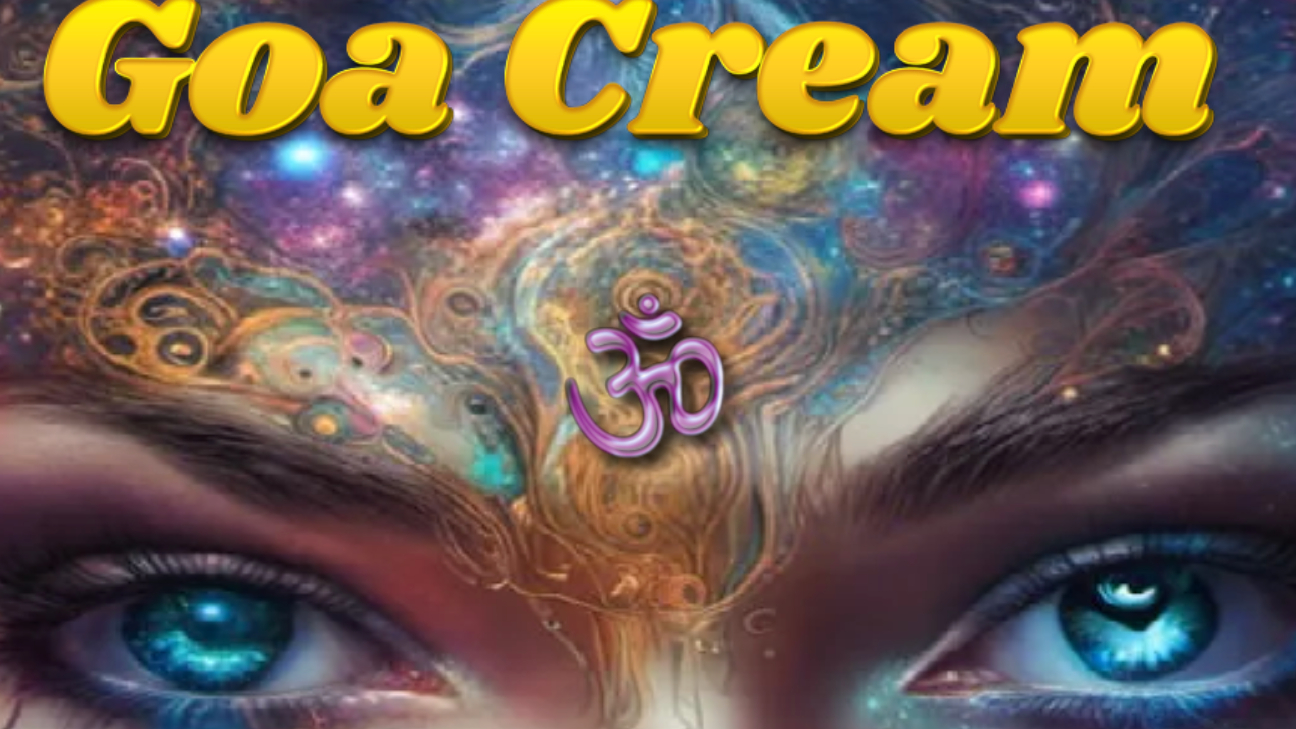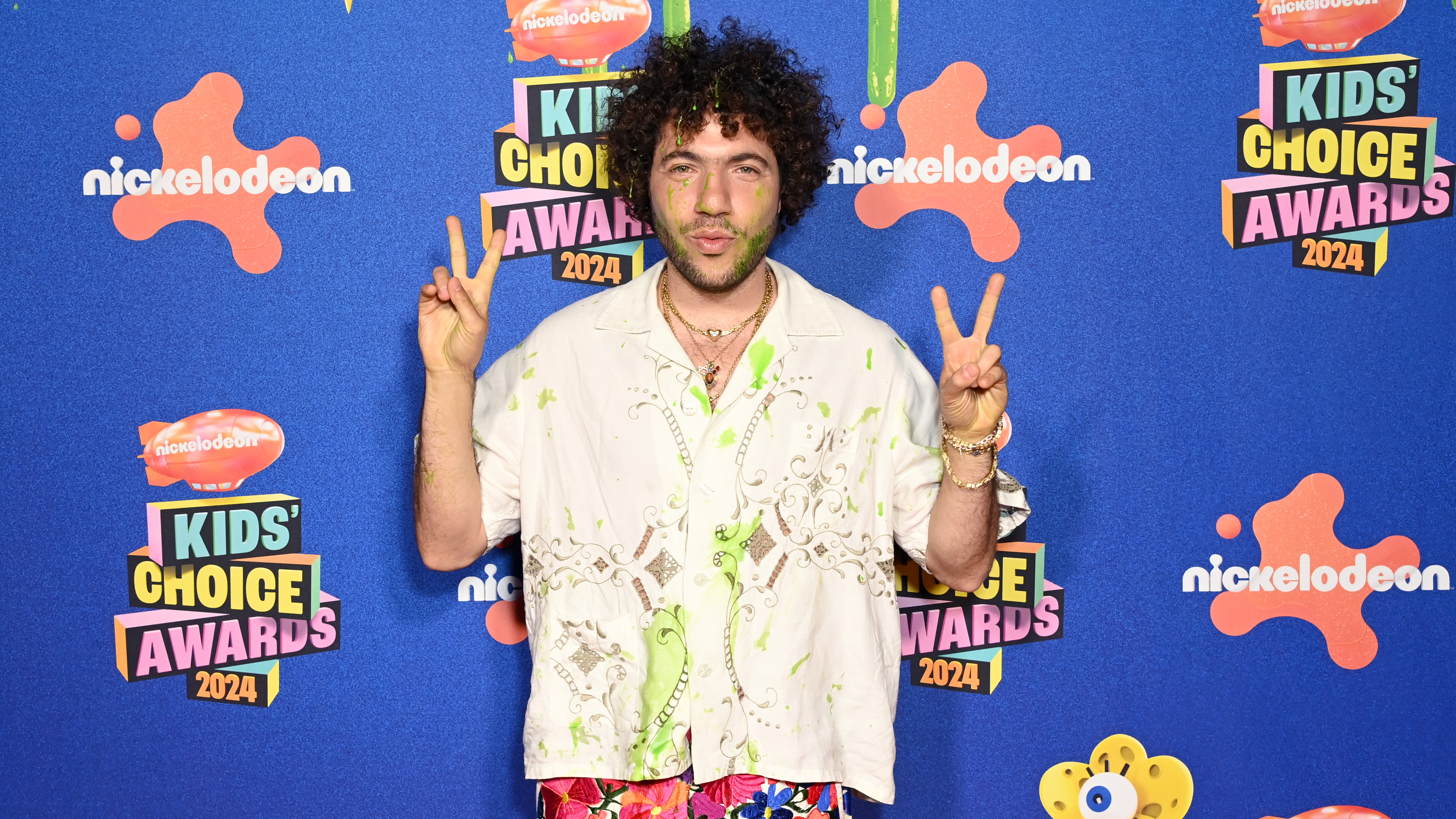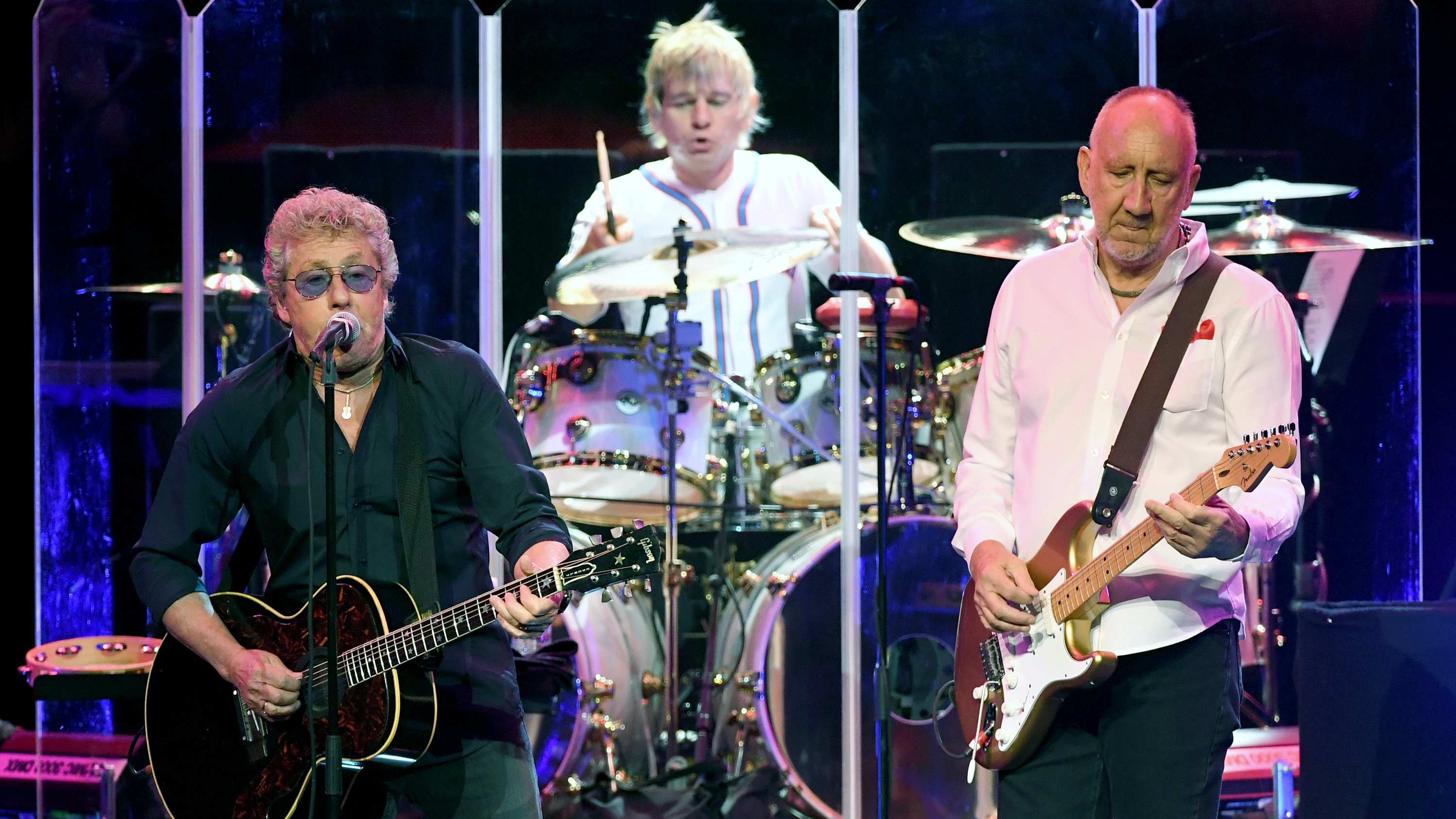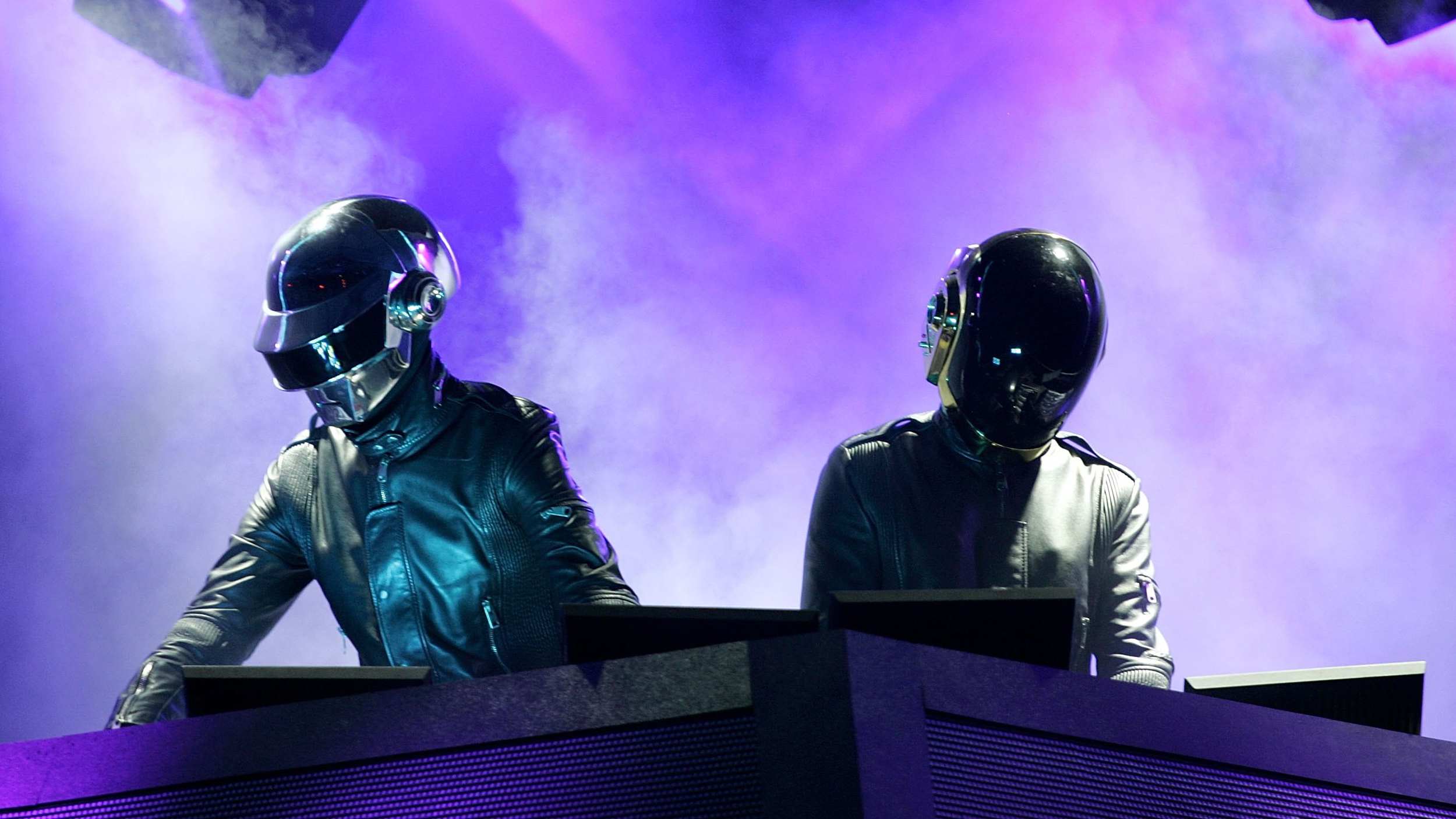Sudan Archives: "A lot of people are like, ‘but there are no violins on this album’... if they only knew!"
The violinist, songwriter and producer on reimagining the sound of her instrument through guitar pedals and Ableton Live
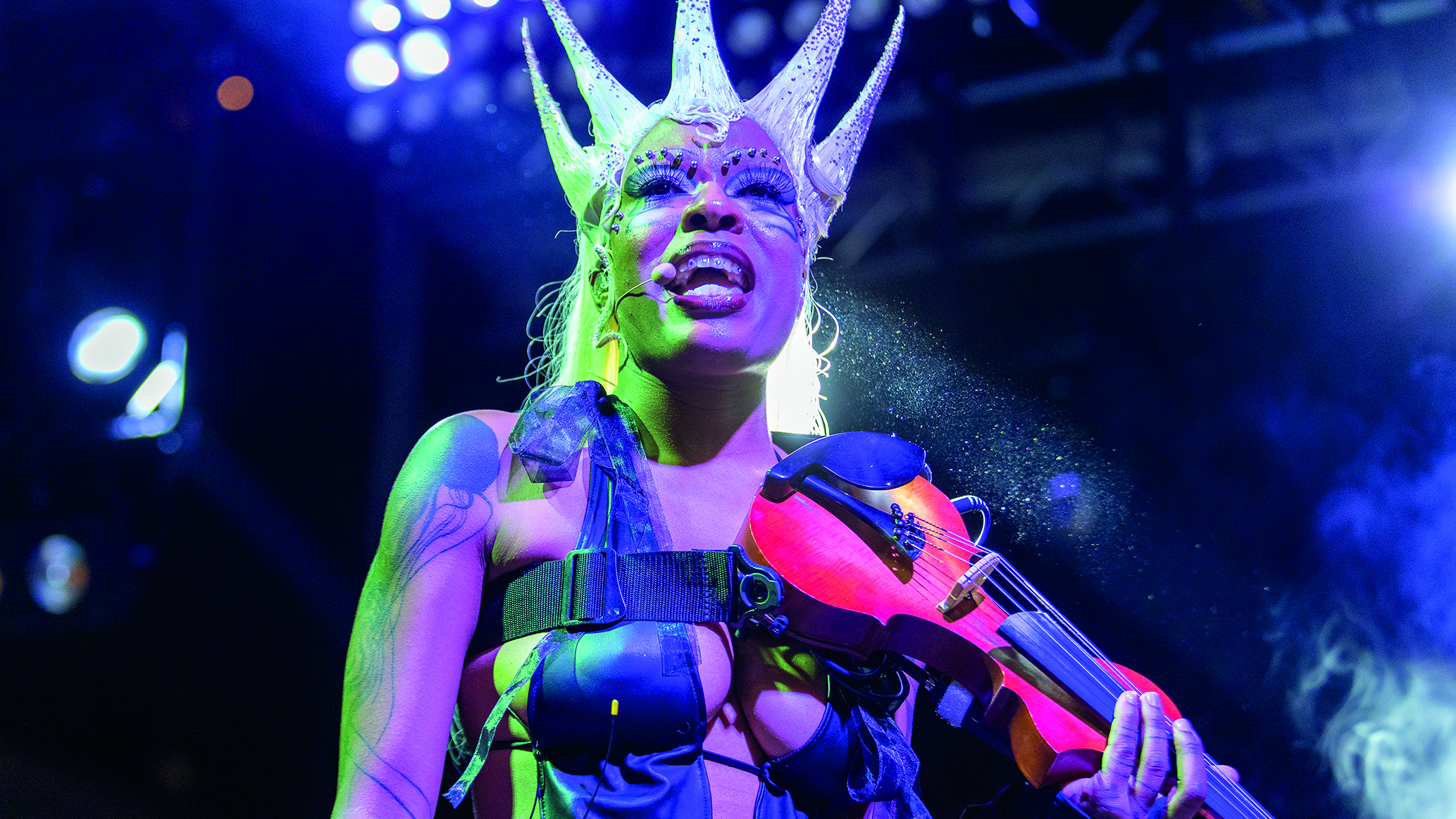
Watching Brittney Parks – aka Sudan Archives – weaving magic onstage with her MIDI violin, tiny bass guitar, and a Roland SP-404X, you get a tantalising glimpse, but not the full picture of the depths of her musical journey.
Her latest single Natural Brown Prom Queen (Topless) from the album of the same name, tells the tale of just one side of her trajectory from a childhood in Ohio, going to church, watching Sailor Moon, membership of an abortive pop group with her twin and heartaches therein.
The longer version of her story, though, includes a long-term love affair with the fiddle, its global ethnomusicology, DIY electronic scenes in Ohio and LA, a fondness for all things pedal-related… and a bucketload of artistic experimentation and field work in multiple countries besides.
An avowed introverted extrovert who cut her teeth working alone, this latest album sees her working with her pick of collaborators, but as she explains, the new normal of Zoom calls and Dropbox helped her transform what could have been outside meddling into a harmonious relationship orchestrated from her homely, recently transformed basement studio.
We caught up with the Stones Throw Records artist in London, the day after a late night shoot for the single NBPQ, and found out more.
When did you first know you wanted to do music?
“Probably fourth grade which was my first time realising that violin is my passion.”
Get the MusicRadar Newsletter
Want all the hottest music and gear news, reviews, deals, features and more, direct to your inbox? Sign up here.
There are people who get deep into learning acoustic instruments who then shy away from actually making anything original with it – preferring to work on technical expertise. How did you start to bridge that gap?
“I think it’s because I went to a lot of experimental shows. You see a DIY version of people living their art. Usually it’s a low pressure event – a house or a small bar – and you can see the combination of tech and art in a less pressurised way. And it feels like, ‘huh, I can do that’. They have a drum machine and you see them do it themselves.
“Sometimes people say that performing is one of humans’ biggest fears. So they stay behind the scenes. But for me it felt like self-expression, something you should do. I grew up in an environment where a lot of men and women were just doing it themselves, with the tech side too. I also know a lot of great musicians who are intimidated by the recording process. They’d rather leave it alone.”
Tell us about some of those first shows you mentioned?
“I can’t remember a lot of names but a lot of Ohio artists, where I’m from, were doing what was called Synthesiser Nights. They were almost trying to do what Low End Theory was doing in LA – an underground experimental scene where musicians who do tech demonstrate the projects they were doing. In Ohio that was the first time I saw people using the SP-404 and using technology to perform. Usually it was rock, country or jazz but that night was the first time I saw something I liked.
“I remember seeing a saxophonist doing all the beats with it and I thought I could do that with the violin. I hadn’t really started experimenting yet. Then I got an iPad which is when I started realising you don’t even need a computer. That’s why I started to reach out to some of the people I did remember. One of the people I saw doing synths was someone called Kafari who performs on Home Maker.”
You had a lot of producers credited on your recent albums but it’s pretty clear you did most of it. Is it hard working with other producers?
“I can’t really work with people in person. The reason I think I had so many people involved and I feel really good about it is because Covid created this thing where we couldn’t work together in the room. So all the way I was producing demos and just sending it to people and they would add what I wanted to add. And I had all these ideas and picked and chose where I want them to go. So I was producing and then executive producing and people were giving ideas. But I was the main person finalising what it should be.
Doing things by yourself is way easier than going into some studio with expensive gear where you feel like you can’t touch anything
“That was the easiest way for me. I didn’t have the anxiety of meeting new people. I don’t feel nervous because sometimes I feel I can’t sing in front of people. I can’t play and do the experimental things I want to do to make the music. I didn’t have to do any of that. I just did it all by myself. And then sent it to people. Way easier than going into some studio with expensive gear where you feel like you can’t touch anything.”
What’s your relationship with gear?
“I’m starting to get into plugins right now because… they’re expensive. I never really had paid ones until two years ago. I would reach out to people who had just made them or developers of ones I’d seen people using and I’d tell them I was working on my album and basically I would get given them. People should know that you are allowed to just ask. A lot of people who make stuff do just want to help. And that’s how you start to collect your database of stuff to use.
“My favourite ones are SoundToys and Valhalla. Ableton have been a huge supporter of me. They have so many in-built ones. Once you have Ableton you don’t necessarily need a whole lot more.
“During Covid I started developing my basement studio, as previously I just did stuff in my room. It used to get too humid down there, so gear couldn’t be left there, but I bought a dehumidifier and it became a liveable space.
A lot of people are like, ‘but there are no violins on this album’. If they only knew!
“One of the big things is my Shure SM7. I use it for all of my songs. No matter where you are, even if it’s not a soundproof room or vocal booth, it just records what’s in front of it. It’s not a super good mic to record instruments but just using that, you can bring it anywhere. Then there’s my violin and my guitar pedals. That’s how I make a lot of the new sounds on the violin. A lot of people are like, ‘but there are no violins on this album’. [Laughs]. If they only knew! It doesn’t sound like there’s no violin but I like to make it sound like a different instrument. A lot of the plucked basslines are the violin. On Homesick, there’s a ‘guitar riff’ that’s actually the violin. That’s the type of sounds I like to make because it doesn’t get boring.”
What are your favourite pedals?
“Well, my favourite brand are EarthQuaker pedals. They’re based in Ohio, like me, which is cool, to me. One of my favourites for violin is the ElectroHarmonix Pitch Fork
pedal. You can make it go to all these crazy octaves – you can make crazy basslines with it. And then the EarthQuaker Afterneath is this crazy reverb which you can use to make haunted kind of sounds.”
What’s your basement space like?
“It basically looks like a garden. I put fake grass on the floor and hung up fake vines and stuff. It’s really playful like a kids’ playground. And there are no windows so there’s not a lot of natural light. You’ve got to make it fun.”

Are you on the road a lot more now?
“I’ll be starting to. Just now I’m doing a show twice a month but it will pick up when the album comes out. I’ve been kind of broke and trying to make ends meet. Covid made things stale.”
What music-making tools do you bring around with you on tour?
“All the gear I bring to perform with, that’s what I use to make the music. If I have an idea and it’s there on the spot I just do it.”
Do you have ideas that you’ve sat on for a few years too?
“Oh I’ve done that before. For the song Glorious, I had no words for it. And then one day I did and it ended up on the Athena album. But I had made that song a long time ago, I just never finished it. A lot of them are naturally made like that… slowly. And that’s why the pandemic was good for me. I could do things how I normally do… slow.”
Is that how you like it or do you aspire for something more rapid, i.e. one take and then done?
“I’m like that in a way but I do that take and then come back to it. But I do aspire to do it more quickly. I’ve always wanted to have a vault of songs that I can just whip out whenever I want. But because of Covid I was able to make a lot. That’s why this new album is like an hour long. All my others were like, 30 minutes.”
A lot of people use orchestral libraries but we guess you don’t need those! Noodling around, chopping up bits and then record?
“That’s exactly how it goes. But even with the orchestral plugins though, I’ll do my own thing and then sometimes go back and check out how they’ve done it… And mix that in with how I’ve done it too.”
As a violinist, do you ever find it weird or annoying hearing how those sounds have been reproduced non-organically?
“I think that’s actually better! If you’re going to be using those and it’s not in a creative way, it doesn’t annoy me. I just think you should do it in a way that a violinist wouldn’t do it. That makes it more unique.”
You’ve got sounds from a broad tapestry of places. How did you get into that?
“Well, I first started playing violin in a different way. Playing fiddle music. A black girl interested in Irish jig music is already different. So I already started seeming different to everyone else. People my age were just listening to what’s on the radio. I was listening to that and Celtic stuff and going to church too. So that was gospel, and then R&B and whatever my big sister was listening to. And when I moved to LA it expanded even more.“
The violin created this whole obsession with string music around the world
“I was just so open because of my upbringing. An open book. The violin created this whole obsession with string music around the world. I wanted to go to school to study ethnomusicology, but I got signed to a label. But I still kept listening to archives. Specifically dying string instruments in Africa and that got me into the African roots of the violin. And then I was always into experimental electronic music. And then it got super broad.”
Obviously Sudan played its part, but is there a specific area you’re interested in?
“I don’t think I can claim a specific area but I am interested in non-classical violin playing. There’s a Czech violinist called Iva Bittová and she plays it in a way that reminds me of Björk if she played violin and sung. And a lot of Russian music. And Sudanese and Nigerian fiddle music. It’s really hard to choose but I guess my favourite thing is finding new ways that people are using it. I really want to master the instrument and to do that you have to work out how people are appropriating it.”
How did you get involved with the Neneh Cherry collaboration album?
“There was a list of all the artists she really loves. She asked everyone to contribute and of course everyone was down.”
Did you feel pressure to do it right?
“I probably did at first because I never do covers. I think that was my first official cover, apart from when I first got signed there was a Kendrick Lamar one.”
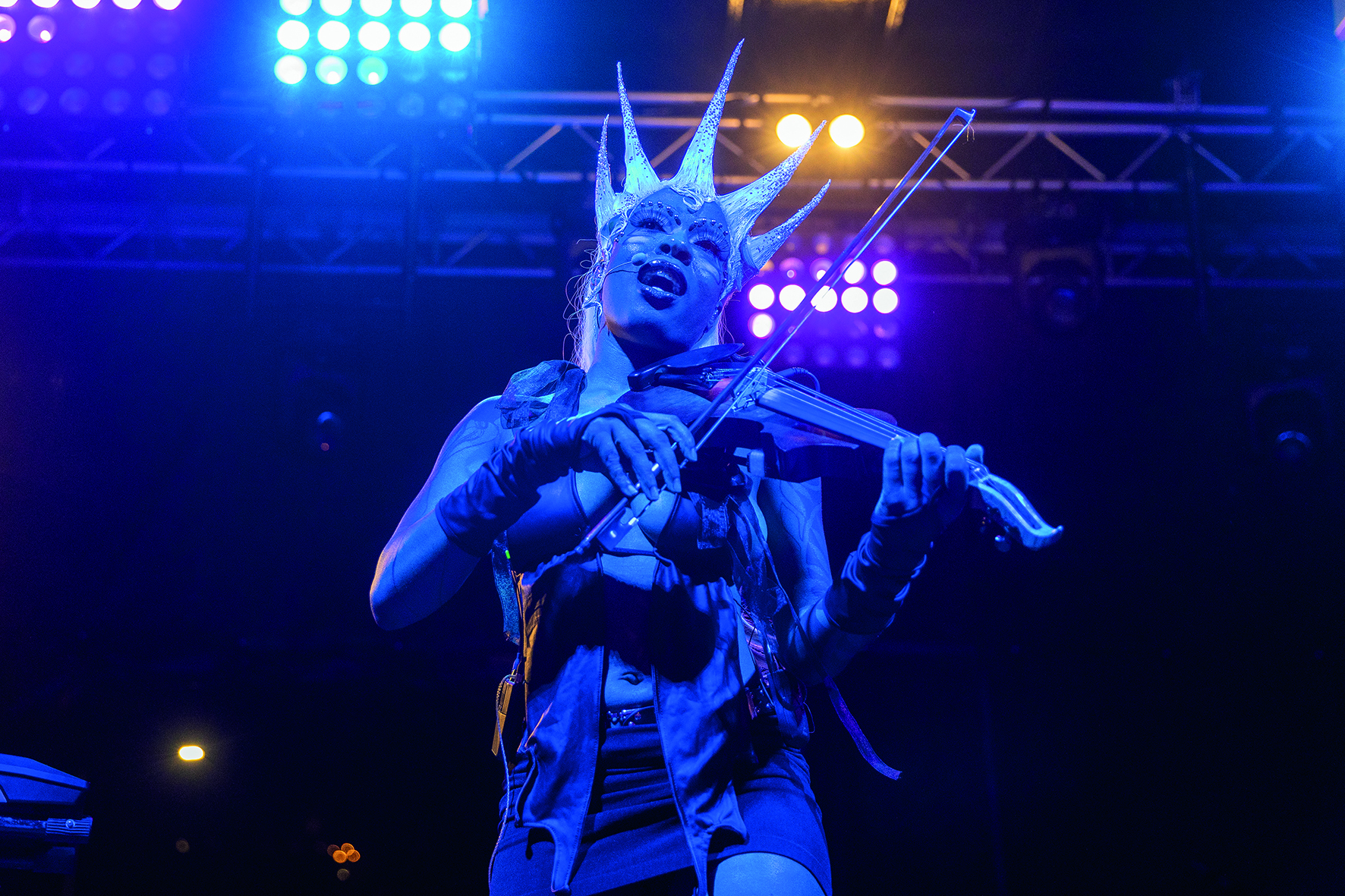
People are saying that NBPQ is poppier but is that just what they always say when an artist moves forward in their career?
“No, I just see it as people wanting to help me make more music and it’s inevitably less lo-fi! If I made the same songs on my computer it would sound different because I don’t know how to master. If Come My Way was mastered the same way that this one is now, it would be called pop too. There were just more people on this record who were there, helping to make it sound bigger.
“If you played Come My Way next to a Rihanna song, you’d have to turn it up way louder to match but now, if you played Home Maker next to one it would be more similar. I just think of it as me meeting more people. And I’m working with top mixers who make my stuff sound really good.”
How do you feel about handing over your work?
“I always give references about how I want it to sound. There’s an art to mixing music. If you can make my music sound huge, that’s not a bad thing.”
When you’re onstage is that a different skill?
“Definitely, it’s hard to be watched while doing it. And I’m not even the type of person who works with other people in the studio even. So it’s a different thing to be able to do the things that people don’t normally watch you do live. I’m still working on it now. In the studio I’m not just playing violin, I’m doing drums and keyboards on stuff. I don’t do that live but I want to. I want to showcase all of the instruments that I play. I want to work on that for the next shows.”
Will we be seeing you with a group of players?
“I’m thinking it’ll be a duo, but we’ll see.”
What does your dream studio look like?
“The same as the one I’m in but with every African instrument in the world. And the same mic but one that was better for picking up instruments. Like the way the rain is pouring outside right now? A mic that could pick that up. That’d be a real expensive mic. And an engineer that came in every day and worked for free. Or at least a budget to have someone who could just engineer.
“Because it does get quite hard staring at a screen all day, it’s a hard part of the job. And if I decided I didn’t want to record that day, they could be like ‘OK, that’s fine, see you tomorrow’. That’s what they do. And maybe access to a soundproof room where I could record as many instrumentalists as I wanted. If I wanted to record a quartet right now it would be hard. But honestly I think that’s it.”
If you were in a fire, what would you save?
“The violin… and the computer. Everything else can burn.”
What’s coming up for you?
“I just shot Topless yesterday and I’m excited to see how people react to that. Because I honestly think Selfish Soul sounds like Confessions, Glorious, a bigger version of what I’ve done before and Home Maker sounds kind of expected… but I don’t know why Topless doesn’t sound expected. Because I’m rapping on it, maybe.”
What’s your standard advice to people asking how they can get into music too?
“I always test people. Close friends ask what they can do to get stuff done like you. And I say open up your iPhone. Because if you can’t do that, you don’t have enough passion to do it. It’s that simple. And I’ll help you, but if you think that’s beneath you, you shouldn’t be making music. And an iPhone costs as much as a laptop these days.”


"At first the tension was unbelievable. Johnny was really cold, Dee Dee was OK but Joey was a sweetheart": The story of the Ramones' recording of Baby I Love You
"Reggae is more freeform than the blues. But more important, reggae is for everyone": Bob Marley and the Wailers' Catch a Fire, track-by-track



